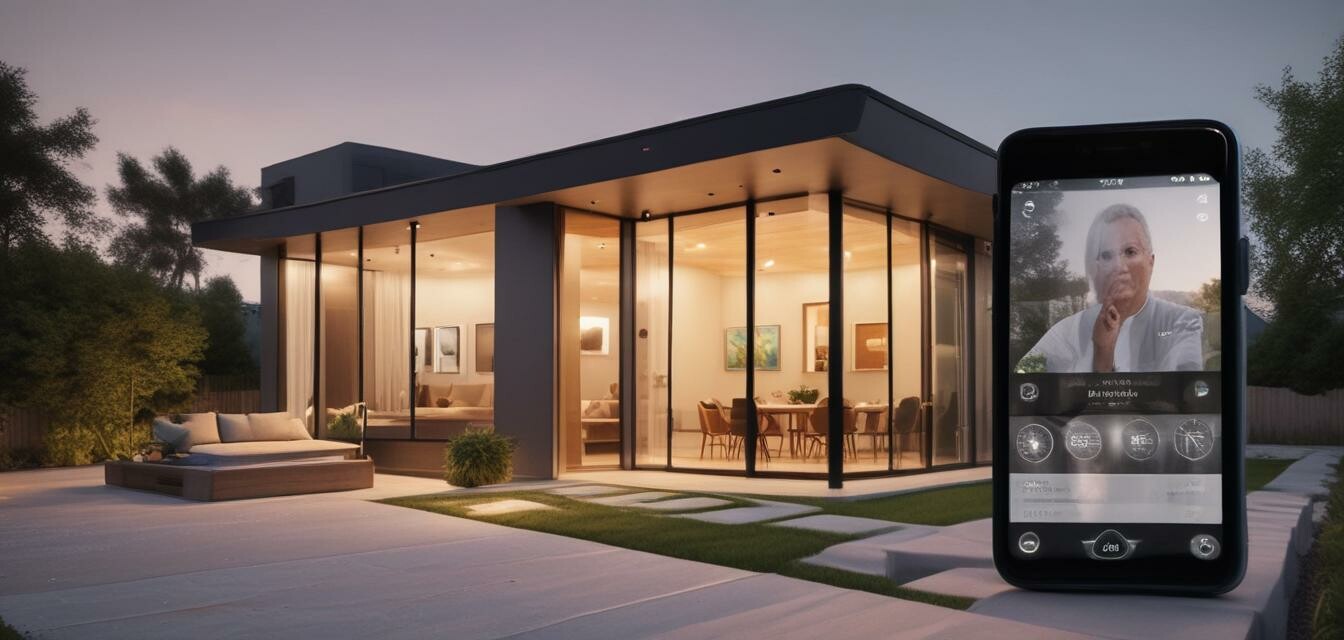
Smart Home Security
The Role of Facial Recognition in Home Security
Key Takeaways
- Facial recognition is increasingly incorporated into smart home security systems.
- This technology enhances security by identifying known individuals and alerting homeowners to unfamiliar faces.
- Despite its advantages, concerns about privacy and misuse of data remain significant.
- It's crucial to balance technological advancements with ethical considerations in home security.
As homeowners strive to protect their properties and loved ones, technology plays a transformative role in enhancing security measures. One of the most promising developments in this space is the integration of facial recognition technology into home security systems. This article explores how facial recognition is shaping the future of home security, while also addressing important implications for privacy and safety.
Understanding Facial Recognition Technology
Facial recognition technology analyzes facial features using artificial intelligence (AI) to identify individuals. This technology relies on algorithms that map facial structures and compare them against databases to verify identities. In the context of home security, it offers new avenues for monitoring and responding to home invasions and other security threats.
How Facial Recognition Works
The process of facial recognition involves several steps:
- **Image acquisition**: Capturing the image of a face using a camera.
- **Face detection**: Identifying and locating the face within the image.
- **Feature extraction**: Analyzing and mapping unique features of the face.
- **Comparison**: Matching the extracted features against a database of known faces to determine identity.
Benefits of Facial Recognition in Home Security
The integration of facial recognition into home security systems presents several distinct benefits:
- **Enhanced security**: Quickly identifies known individuals, boosting response times for potential threats.
- **Automated alerts**: Sends notifications about unknown faces to homeowners, providing peace of mind.
- **User-friendly access**: Can replace physical keys, allowing secure yet convenient access for family members.
- **Remote monitoring**: Allows homeowners to monitor their property in real-time from anywhere in the world.
Challenges and Privacy Concerns
While facial recognition technology offers enhanced home security, it also raises significant concerns:
- **Privacy issues**: The ability of technology to track and record individuals without consent can lead to the misusage of personal data.
- **Bias in algorithms**: Algorithms may be less effective at recognizing faces of certain ethnicities, leading to unfair practices.
- **Data security**: If not properly protected, data related to facial recognition can be vulnerable to breaches and misuse.
Pros
- Improves response times to security threats.
- Can enhance family accessibility to homes.
- Facilitates visual identification and verification.
Cons
- Potential for privacy invasion and tracking without consent.
- Risk of data misuse if not adequately secured.
- Technological bias affecting performance across diverse populations.
Conclusion
Facial recognition technology is redefining the boundaries of home security, offering innovative ways to safeguard our homes. As this technology continues to evolve, it is essential to foster a balance between leveraging its benefits and addressing privacy concerns. Smart homeowner security starts with informed choices, making it vital for consumers to stay updated with the latest trends and advancements.
Stay Updated with Smart Home Security Trends
To learn more about how technology impacts home security, visit our News and Trends page. Explore topics from the latest alarm systems to smart video doorbells, equipping yourself with knowledge to make informed decisions for your home.
Tips for Homeowners
- Research privacy policies before investing in facial recognition systems.
- Consider additional security measures, like alarms and motion sensors.
- Stay informed about technological advancements in home security.